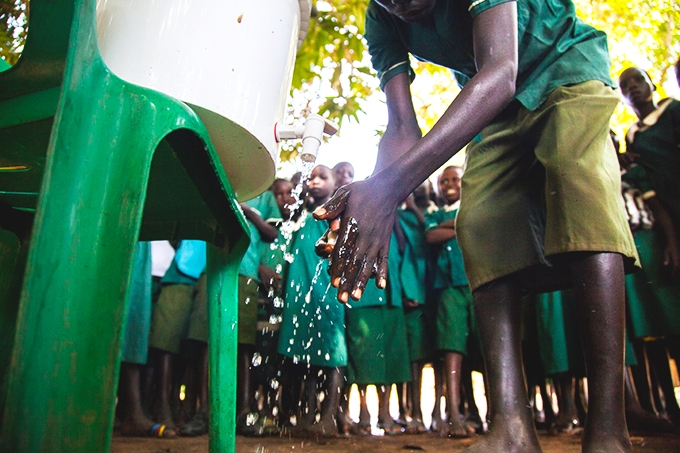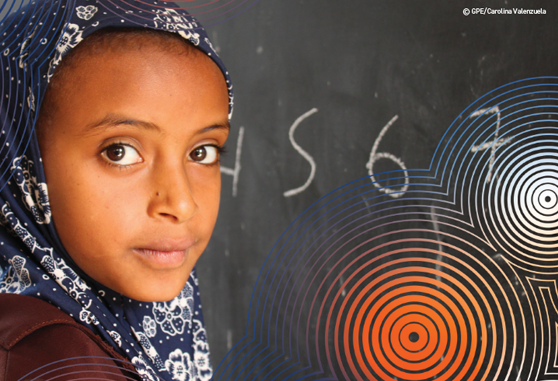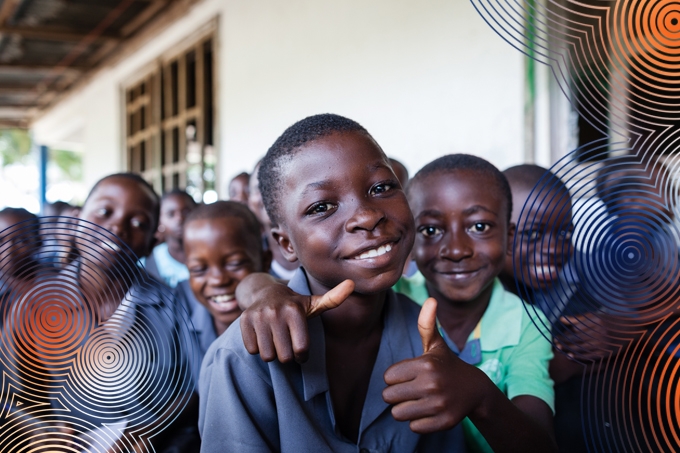Civil society plays a crucial role in the coronavirus response
Education Out Loud just launched a new call for proposals. This funding will come at a critical time during the worldwide COVID-19 crisis, and will ensure that civil society can continue to play its essential role of keeping government to account and giving a voice to the most marginalized.
The Global Partnership for Education sees quality equitable education as a catalyst of global progress on all the Sustainable Development Goals adopted in 2015. As we find our way through the disastrous consequences of the coronavirus, GPE is redoubling efforts to help partner countries protect and sustain their education systems and ensure that the needs of the most vulnerable children are prioritized in response and recovery efforts. Education Out Loud can play a critical role in supporting civil society’s vital efforts in this work.
Widening inequality
The spread and impact of COVID-19 is unprecedented. This public health emergency will likely result in a global economic crisis – both of which will hit the poorest and most marginalized communities the hardest. These twin crises expose the widening inequality around the world and threaten to exacerbate the gap between rich and poor, sending us back decades in our progress towards a more equal world. In the short term, the widespread closure of schools – now affecting 91% of the world’s student population – cuts children off from the vital services and protection that schools provide.
The most vulnerable children from the poorest families will be most likely to have their health, nutrition and wellbeing impacted, their learning stopped, and their safety at risk because their school has closed. Without school as an equalizing force, the stark social, economic and geographical inequalities threaten to widen severely. For many, especially first-generation learners, homeschooling may not be an option. For them, especially girls, school closures mean that they may never step foot in a classroom again – facing increased risks of domestic violence, sexual abuse, child marriage and early pregnancy.
In the long term, Oxfam estimates that half a billion more people may be pushed into poverty as economies lose jobs, small businesses shut down and safety nets are lost in the wake of the pandemic. The lack of food, increased homelessness, and heightened insecurity will permanently set back the once bright futures of millions of children around the world. And the economic shock is likely to reduce education spending further, putting pressure on households to meet the growing financing gaps. Compounding these hardships, growing public fear and misinformation may fuel discrimination, stigma and intolerance.
Civil society at risk
The ability to mitigate these impacts relies heavily on the ability of civil society to maintain its role and give voice to communities most likely to be left behind in the public emergency response. Yet the crisis will also hamper civil society’s ability to respond. Closing civic space, constraints on movement and increasingly authoritarian policies in many countries make the environment for advocacy and accountability an extremely difficult one to work in. Civil society will also face dwindling resources, as the contributions that allow them to work on behalf of the public interest dry up as a consequence of the widespread economic crisis.
The pandemic may result in a civil society collapse in many countries. This is why now more than ever, the need to support strong and active civic networks is critical. Education Out Loud can play a key role at this critical time in expanding the funding base for civic action.
The role of civil society during and after the crisis
While this may be one of the most difficult environments for civil society, it is also a critical moment where its work has never been more important. There is an immediate role for civil society in monitoring the impact of school closures on the poorest, especially girls, and to advocate for effective responses to the pandemic. Governments struggling to respond and recover will need active open feedback loops helping them understand in real time how decisions made are impacting their citizens.
Civil society can facilitate engagement with affected communities, a critical part of ensuring contextually relevant responses. For example, during the Ebola epidemic in 2014 the Education for All coalition in Sierra Leone was pivotal in devising an innovative TV and radio teaching program to reach children remotely, and helped to mobilize the back to school campaign using radio programs and local community meetings to reach out to citizens. Emergency response measures must be transparent, as hasty action opens up the risk of corruption, poor planning, or unintended consequences – leading to erosion of trust in government.
Lessons from the SARS epidemic shows that one of the most important factors in the effectiveness of a government’s response to stop the spread of disease is the level of trust of its citizens. As COVID 19 puts even more pressure on the universality and quality of education systems – and on the capacity of governments to track and respond to those impacts – civil society can play an important role in ensuring that crisis response is targeted to the most vulnerable and sustained through the recovery phase.
To play this role, however, it is vital that civil society be supported to advocate for measures to protect and prioritize the most vulnerable – including using their influence to inform government priorities in the emergency and recovery phases of the pandemic response. Budget monitoring, grassroots social mobilization, and tracking the quality and reach of service delivery will all be important elements of civic engagement to rebuild education during and after the crisis. Civic organizations must be able to ask: How are public resources – especially in the education sector - reallocated and spent to protect the most vulnerable members of our societies? What measures work to sustain learning for the poorest and how can we apply this knowledge to improve education equality post-crisis?
The future of education recovery will be built by these civic networks, working actively with communities to help ensure that education systems are strengthened to serve and include the most marginalized.
Education Out Loud as a lifeline
Amidst this crisis, Education Out Loud is a timely lifeline. The fund issued its first two calls for proposals last year, and newly approved grants can be recalibrated to include support to advocacy and monitoring of COVID responses. Mid april, the fund is launching its third call for proposals, inviting national civil society organizations to apply for resources to promote the transparency and accountability of national education sector policy and implementation.
With grants of US$450,000 to US$1.2 million over up to three years, this support will help civil society groups to: Design accountability strategies responsive to critical issues in the evolving policy context Improve the transparency, participation, and accountability of education sector policy dialogue Increase the availability, sources and variety of information to formulate and act on relevant policy solutions, Mobilize citizens as right holders to play an active role in monitoring implementation of education policies and finance and use this information to hold duty bearers at all levels accountable.
One clear focus of this responsive creative work can be inclusive advocacy and transparent monitoring to ensure equity for the most vulnerable in the design and execution of COVID education responses and recovery. The call will be open until June 19, 2020.


